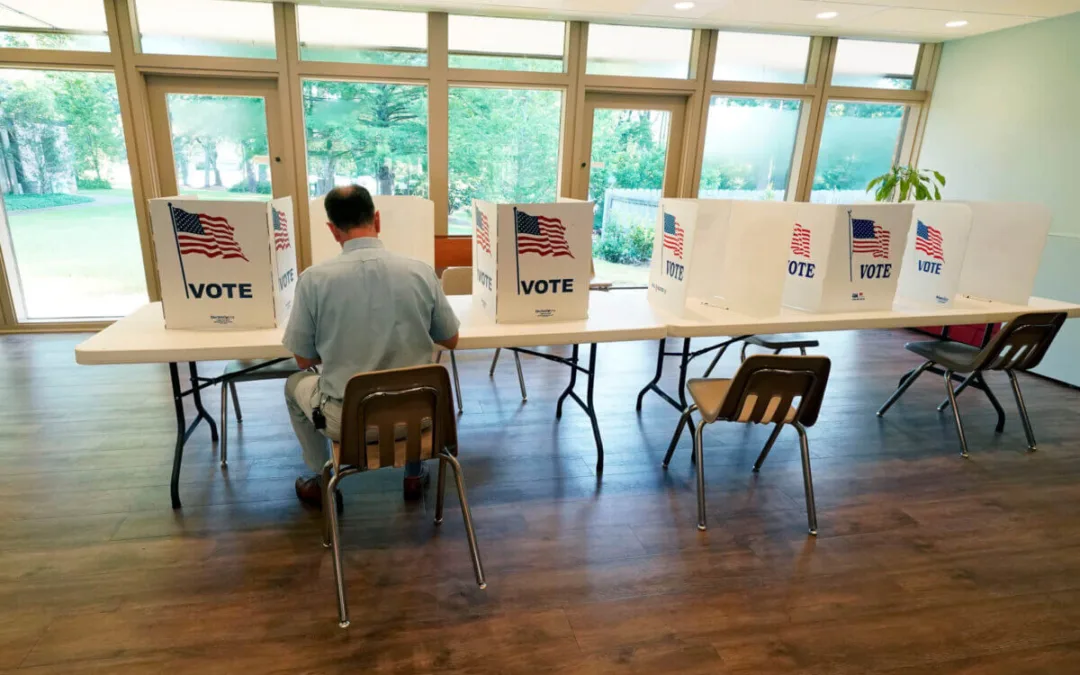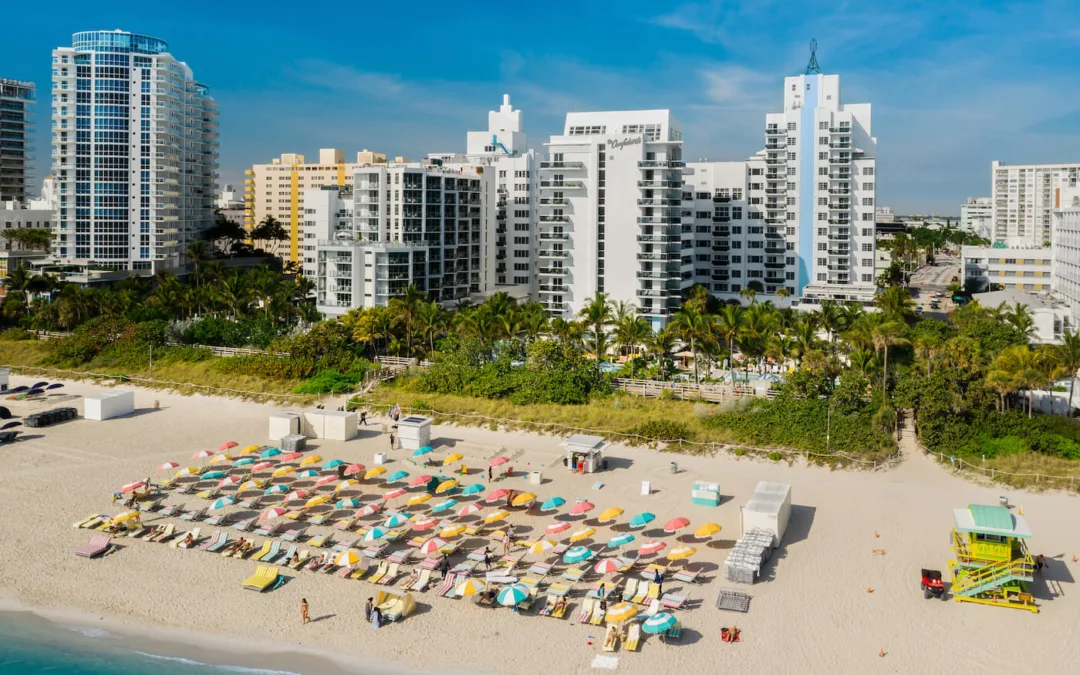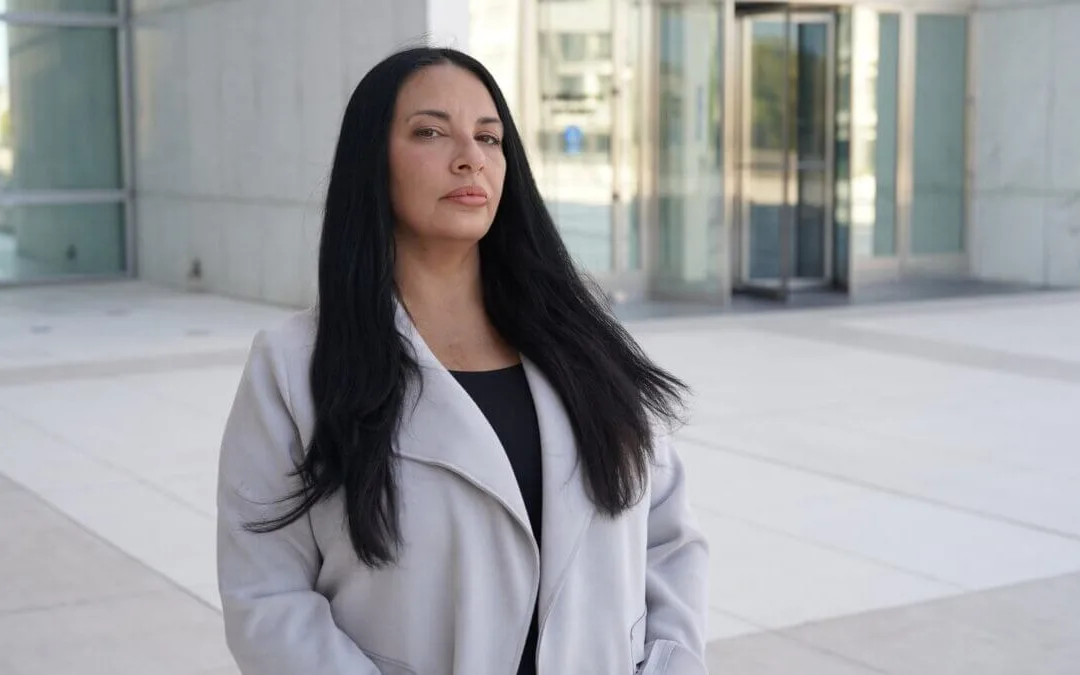
Image via Shutterstock
The judge overturned part of a law passed by Republican lawmakers and signed by Gov. Ron DeSantis last year forbidding ex-felons to vote.
Calling the law a “pay-to-vote system,” U.S. District Judge Robert Hinkle ruled Sunday that it is unconstitutional to prevent felons in Florida from voting because they can’t afford to pay back court fees, fines, and restitution to their victims.
“This order holds that the State can condition voting on payment of fines and restitution that a person is able to pay, but cannot condition voting on payment of amounts a person is unable to pay,” Hinkle wrote in his 125-page ruling.
WATCH: Ex-felons registering to vote for the first time after the ruling, USA Today reports.
Under Hinkle’s ruling, felons who were appointed an attorney for their criminal case because they couldn’t afford one, and anyone who had their financial obligations converted to civil liens, are allowed to register to vote.
Felons who can’t afford to pay their financial obligations can now request an advisory opinion from Secretary of State Laurel Lee. Lee must then issue his opinion within 21 days of receipt —telling the felon how much fines and restitution to victims are owed, and how the state decided on that amount. If the 21-day deadline is not met, the felon cannot be stopped from registering to vote.
Championed by DeSantis
With this decision, the judge effectively overruled part of a law passed by Republican lawmakers and signed by Gov. Ron DeSantis last year.
The law is part of Amendment 4, which was originally meant to reverse the state’s Jim Crow-era law prohibiting felons from voting, as well as restore the right to vote to felons who completed all terms of their sentence.
But because the definition of “all terms” was not clearly defined in the amendment, the Republican-controlled Legislature in 2019 passed a bill defining “all terms” to include court fees, fines, and restitution associated with a case, a move the state’s Republican governor Ron De Santis actively pushed for and signed into effect.
RELATED: Voter Registration Has Dropped Significantly in Many States Due to COVID-19
During the trial, which was held via teleconference and ended on May 6, lawyers argued that DeSantis and lawmakers created a system that often becomes a Catch-22 for felons. Even if they wanted to pay the court fees and fines they owe, state and county officials themselves often don’t know the amount, making it impossible for felons to fulfill their financial obligation.
“Determining how much a person convicted of a felony in Florida was ordered to pay as part of a criminal sentence is not as easy as one might expect,” the judge wrote in his ruling.
Will It Make a Difference in November?
With more than one million felons in the state, Hinkle’s ruling could have a decisive effect on the November presidential election. Florida is one of the nation’s most important swing states, tied in third place with the most electoral votes, 29.
RELATED: Black Communities Will Be Disproportionately Affected If States Have to Ration Coronavirus Care
In fact, the Sunshine State is often seen as a microcosm of the country as a whole. This reputation has come about due to the razor’s edge closeness of its presidential elections. In 2016, for example, Donald Trump bested Hillary Clinton by 1.2% of the vote.
Hinkle’s ruling was praised by the American Civil Liberties Union, which last year sued Gov. DeSantis and state elections officials over this issue, and a spokesman for the Florida Rights Restoration Coalition called it “a game-changer.”
Politics

Teamsters and UPS Reach Tentative Deal to Avoid Strike, 340,000 Workers to Get Raises
The tentative deal represents a huge win for full- and part-time UPS Teamster workers, who would get significant pay raises and better working...



One Republican Senator Is Blocking 265 Military Promotions, Leaving the Marines Without a Confirmed Leader
Sen. Tommy Tuberville's decision means these military officers are not getting the pay raises they’re owed, cannot move their families to wherever...
Local News



Teamsters and UPS Reach Tentative Deal to Avoid Strike, 340,000 Workers to Get Raises
The tentative deal represents a huge win for full- and part-time UPS Teamster workers, who would get significant pay raises and better working...



One Republican Senator Is Blocking 265 Military Promotions, Leaving the Marines Without a Confirmed Leader
Sen. Tommy Tuberville's decision means these military officers are not getting the pay raises they’re owed, cannot move their families to wherever...




